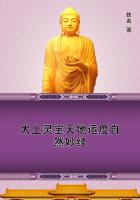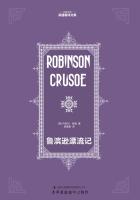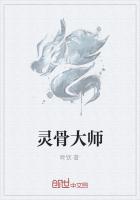That year, towards the breaking up of the south-west monsoon, disquieting rumours reached Sambir. Captain Ford, coming up to Almayer's house for an evening's chat, brought late numbers of the Straits Times giving the news of Acheen war and of the unsuccessful Dutch expedition. The Nakhodas of the rare trading praus ascending the river paid visits to Lakamba, discussing with that potentate the unsettled state of affairs, and wagged their heads gravely over the recital of Orang Blanda exaction, severity, and general tyranny, as exemplified in the total stoppage of gunpowder trade and the rigorous visiting of all suspicious craft trading in the straits of Macassar. Even the loyal soul of Lakamba was stirred into a state of inward discontent by the withdrawal of his license for powder and by the abrupt confiscation of one hundred and fifty barrels of that commodity by the gunboat Princess Amelia, when, after a hazardous voyage, it had almost reached the mouth of the river. The unpleasant news was given him by Reshid, who, after the unsuccessful issue of his matrimonial projects, had made a long voyage amongst the islands for trading purposes; had bought the powder for his friend, and was overhauled and deprived of it on his return when actually congratulating himself on his acuteness in avoiding detection. Reshid's wrath was principally directed against Almayer, whom he suspected of having notified the Dutch authorities of the desultory warfare carried on by the Arabs and the Rajah with the up-river Dyak tribes.
To Reshid's great surprise the Rajah received his complaints very coldly, and showed no signs of vengeful disposition towards the white man. In truth, Lakamba knew very well that Almayer was perfectly innocent of any meddling in state affairs; and besides, his attitude towards that much persecuted individual was wholly changed in consequence of a reconciliation effected between him and his old enemy by Almayer's newly-found friend, Dain Maroola.
Almayer had now a friend. Shortly after Reshid's departure on his commercial journey, Nina, drifting slowly with the tide in the canoe on her return home after one of her solitary excursions, heard in one of the small creeks a splashing, as if of heavy ropes dropping in the water, and the prolonged song of Malay seamen when some heavy pulling is to be done. Through the thick fringe of bushes hiding the mouth of the creek she saw the tall spars of some European-rigged sailing vessel overtopping the summits of the Nipa palms. A brig was being hauled out of the small creek into the main stream. The sun had set, and during the short moments of twilight Nina saw the brig, aided by the evening breeze and the flowing tide, head towards Sambir under her set foresail. The girl turned her canoe out of the main river into one of the many narrow channels amongst the wooded islets, and paddled vigorously over the black and sleepy backwaters towards Sambir. Her canoe brushed the water-palms, skirted the short spaces of muddy bank where sedate alligators looked at her with lazy unconcern, and, just as darkness was setting in, shot out into the broad junction of the two main branches of the river, where the brig was already at anchor with sails furled, yards squared, and decks seemingly untenanted by any human being. Nina had to cross the river and pass pretty close to the brig in order to reach home on the low promontory between the two branches of the Pantai. Up both branches, in the houses built on the banks and over the water, the lights twinkled already, reflected in the still waters below. The hum of voices, the occasional cry of a child, the rapid and abruptly interrupted roll of a wooden drum, together with some distant hailing in the darkness by the returning fishermen, reached her over the broad expanse of the river. She hesitated a little before crossing, the sight of such an unusual object as an European-rigged vessel causing her some uneasiness, but the river in its wide expansion was dark enough to render a small canoe invisible. She urged her small craft with swift strokes of her paddle, kneeling in the bottom and bending forward to catch any suspicious sound while she steered towards the little jetty of Lingard and Co., to which the strong light of the paraffin lamp shining on the whitewashed verandah of Almayer's bungalow served as a convenient guide. The jetty itself, under the shadow of the bank overgrown by drooping bushes, was hidden in darkness. Before even she could see it she heard the hollow bumping of a large boat against its rotten posts, and heard also the murmur of whispered conversation in that boat whose white paint and great dimensions, faintly visible on nearer approach, made her rightly guess that it belonged to the brig just anchored. Stopping her course by a rapid motion of her paddle, with another swift stroke she sent it whirling away from the wharf and steered for a little rivulet which gave access to the back courtyard of the house. She landed at the muddy head of the creek and made her way towards the house over the trodden grass of the courtyard. To the left, from the cooking shed, shone a red glare through the banana plantation she skirted, and the noise of feminine laughter reached her from there in the silent evening. She rightly judged her mother was not near, laughter and Mrs. Almayer not being close neighbours. She must be in the house, thought Nina, as she ran lightly up the inclined plane of shaky planks leading to the back door of the narrow passage dividing the house in two. Outside the doorway, in the black shadow, stood the faithful Ali.
"Who is there?" asked Nina.
"A great Malay man has come," answered Ali, in a tone of suppressed excitement. "He is a rich man. There are six men with lances. Real Soldat, you understand. And his dress is very brave. I have seen his dress. It shines! What jewels!
Don't go there, Mem Nina. Tuan said not; but the old Mem is gone.














